
Two thirds of the free jazz group "Boom Box"--saxophonist Thomas Borgmann and drummer Willi Kellers--and referencing that band's 2011 album titled Jazz, Keys & Screws is rounded out as a trio with double bassist Jan Roder, following the format of Jazz with compositions from each player following head/solo format, fueled by each player's extensive experience.
In Stock
Quantity in Basket: None
Log In to use our Wish List
Shipping Weight: 24.00 units
EU & UK Customers:
Discogs.com can handle your VAT payments
So please order through Discogs
Sample The Album:
Dave Sewelson-baritone saxophone
Mats Gustafsson-baritone saxophone
Will Connell, Jr.-alto clarinet
Dave Hofstra-bass
Susie Ibarra-drums
Walter Perkins-drums
JC Morrison-electric guitar
Click an artist name above to see in-stock items for that artist.
Label: NoBusiness
Catalog ID: NBLP 134
Squidco Product Code: 29302
Format: LP
Condition: New
Released: 2020
Country: Lithuania
Packaging: LP
Recorded in New York City, New York, on October 16th, 1994, by Steve Guttenberg.
"I do not know if DUX Orchestra was an established orchestra, or if this was an "ad hoc" ensemble with some of the freshest freejazz musicians who were about to become "big" at the time the record was recorded. But no matter where it was or was not, we get three relatively long "stretches" composed (?) By guitarist JC Morrison and arranged (?) By him and baritone saxophonist Dave Sewelson. "Happening" was recorded in an attic in New York City on October 19, 1994, so there is no new recording we get to be part of. Together with Sewelson and Morrison, we meet baritone saxophonist Mads Gustafsson, alto clarinetist Will Connell jr., Bassist Dave Hofstra and drummers Susie Ibarra and Walter "Sweets" Perkins.
In the 90's, Morrison worked closely with Sewelson for a while, and to use Morrison's own words on the collaboration, it was "free music with edges of punk and" folk "music, as I like to explain it". Morrison at the time played relatively frequently with bassist William Parker and Susie Ibarra at clubs and cafes in the East Village, New York, and he says they once played in a country & western bar, where they cleaned the venue in five minutes. . And about the recording that is now "multiplying" through the stereo, he says: "I had ambitions. and one of them was an orchestral arrangement. it was recorded by Steve Guttenberg at a now forgotten Chelsea loft, and ended with the neighbors beating on the doors. that is actually on the recording. Well, it was lost! when i lost my loft. Until a safety copy came to light last year ".And here we get the result of this meeting, which the neighbors were not exactly over-enthusiastic about.
We get three relatively long, freely improvised "stretches", with the titles "Duck Walks Dog", "Mixed Results, Part I" and "Mixed Results, Part II". And all the way, this is energetic freejazz as we know it from several recordings with Mats Gustafsson after this. It is clear that this recording, and this time, has made an impression on the musicians who appear on the record. We recognize a lot of the aftermath that has come on countless records and concerts with Mats Gustafsson and his many different projects. The same can almost be said about the drummer Susie Ibarra, although in recent years she has gone in a more "searching" direction. And Hofstra has long been a bassist who has enjoyed himself to a great extent in this musical landscape.
What strikes me most about the record is the interaction between Sewelson and Gustafsson, with Connell jr. as a good "pusher". It is almost impossible to distinguish between the two baritone saxophonists, for they both make a persistent effort to "straighten" the great horn. They function almost like Siamese twins throughout the three songs, and behind them are the two drummers and all the way "push" and push the saxophonists and clarinetist forward. Occasionally, especially at the start of the second track, Morrison excels with fine riff-based guitar playing over the drummers' "cook", before the saxophonists come in and want to be on the show.
Because it's a show we get to be part of. It is energetic and free, even if it never gets out of control. And all the way, I think this is music that creates energy, not only with the musicians, but also with us as listeners. A lot of inspiration is probably taken from a number of other free-ranging musicians who were important in the design of the energetic free jazz at the time, and which several of these musicians have developed further since 1994. And something particularly tougher music than this, you simply do not get within today's jazz.
It's probably not the easiest thing in the world to let "The Duck Walk The Dog", which comes out well in the title track, and the following two songs, which describe how it goes when you let a duck go for a walk with the dog, do not result in a successful result in either of the two "stretches". Most listeners might argue that it changes in chaos, but for those of us who have been following this music for a long time, might think otherwise. It must have been an extremely exciting trip anyway. For this has become a delicious, free-flowing, energetic, vital and exciting recording, where all the musicians who were in the attic of Manhattan, delivered great art that, at least I, am very happy that is now out on record. And many thanks to NoBusiness Records who have finally released this music. Then the neighbors, both in Manhattan,those in Frederiksberg in Denmark and all the other places the music will be played, think exactly what they want!"-Jan Granlie, Salt Peanuts (translated by Google)
Get additional information at Salt Peanuts
Artist Biographies
• Show Bio for Dave Sewelson "Dave Sewelson was born in Oakland, California, in 1952. There was a half-size violin kept in the closet in case he wanted to be a concert violinist. He played trumpet at the age of nine, moving to baritone horn at the age of eleven, followed by a stint on drums until settling on electric bass at thirteen, adding upright bass to the mix until the switch to saxophone at the age of twenty-one. He has specialized in the baritone saxophone since the early seventies. Sewelson arrived in New York City in the summer of 1977, settled in the East Village becoming an active member of the Downtown Scene, playing with the 25 O'Clock Band, Jemeel Moondoc's Jus Grew Orchestra, William Parker's Little Huey Creative Music Orchestra and Saheb Sarbib's Multinational Big Band and the Microscopic Septet. He has played with many wonderful musicians, including, Billly Bang, John Zorn, Peter Kuhn, Alex Cline, Roy Campbell, Sonny Murray, Kidd Jordan, Daniel Carter, Will Connell and Stephanie Stone.. Dave's current projects include, Two Sisters Inc. with David Hofstra and Claire Daly, a quartet with Peter Kuhn, Smooth Freejazz, Sewelsonics, and The Daves." ^ Hide Bio for Dave Sewelson • Show Bio for Mats Gustafsson ^ Hide Bio for Mats Gustafsson • Show Bio for Will Connell, Jr. "The son of a violin prodigy deprived of the profession by racist politics, Will Connell Jr became aware of both music and the struggle for justice as a child of the '40s. Jazz served as a source of art and great pride for the African American community, and its impact on Connell was nothing short of visceral: "I heard Billie Holiday at 17. Tears ran down my face like Niagara Falls". That same year, 1956, Connell joined the US Air Force, serving some nine years. In between tours he purchased an alto saxophone but didn't dedicate himself to music until surviving a chemical blast that blinded him for several days. Lying in an Air Force hospital in darkness, Connell vowed that if he regained his eyesight, he'd formally study this art that had driven him so deeply. This and the gnawing outrage about the military's treatment of Black servicemen led to his decision re-join civilian life. Studies at LA City College (Dolphy's alma mater) led to years of close work with Horace Tapscott wherein Connell served as reeds player and music librarian and copyist. The Tapscott organization was LA's paramount arm of the Black Arts Movement and its immersion into African American culture and liberation had a lasting impact on Connell. By 1975 Connell relocated to NYC's Lower East Side where he remains till today. Through the decades he has performed or recorded with such luminaries as, Cecil Taylor, Anthony Braxton, William Parker, Rahsaan Roland Kirk, Chico Hamilton, Pharoah Sanders, Butch Morris, Roy Campbell, Sam Rivers, Steve Swell, Billy Bang, Henry Threadgill, Oliver Lake, Daniel Carter, and many others. He also engaged in extensive projects as music copyist, most notably Ornette Coleman's 'Skies of America' as well as for David Murray's Big Band, the World Saxophone Quartet and a bevy of R & B and pop artists ranging from Michael Jackson and Roberta Flack to Stevie Wonder and Simon & Garfunkel. Will Connell has been a deeply relevant part of this rather unclassifiable musical genre which prides itself on free improvisation as much as post-modern composition, global sounds and the bite of revolutionary politics. Usually preferring to be a member of a band as opposed to its leader, Connell may be the last of the modest greats. Having served as guest curator at the Stone in 2012, which brought him some note, and featured earlier this year in the Arts for Art organization's series, and as a member of the Veterans of Free on the Tribute to 'New York Eye & Ear Control' concert in June, this master of the New Jazz now takes his rightful place at front and center." ^ Hide Bio for Will Connell, Jr. • Show Bio for Dave Hofstra "David Carl "Dave" Hofstra (born May 21, 1953, Leavenworth, Kansas) is an Americh jazz double-bassist. He also plays bass guitar and tuba. Hofstra was an autodidact on bass. He worked with Robin Holcomb, John Zorn, Joel Forrester, and Dave Sewelson (de) in the late 1970s.[1] He was active primarily in New York from the 1980s, playing with William Parker, Lou Grassi (de), Denis Charles, Elliott Sharp, Paul Shapiro, Bobby Previte, Wayne Horvitz, Saheb Sarbib, Bobby Radcliff, Jemeel Moondoc, Marie McAuliffe, Bill Frisell, Robin Eubanks, Greg Osby, David Rosenbloom, Phillip Johnston, Chris Kelsey, Rachelle Garniez (de), Clare Daly, William Gagliardi (de), and Robin Holcomb." ^ Hide Bio for Dave Hofstra • Show Bio for Susie Ibarra "Susie Ibarra is a Filipina-American composer, percussionist, and sound artist. Her sound has been described as "a sound like no other's, incorporating the unique percussion and musical approach of her Filipino heritage with her flowing jazz drumset style" (Modern Drummer Magazine) and her compositions are sometimes described as "calling up the movements of the human body; elsewhere it's a landscape vanishing in the last light, or the path a waterway might trace" (New York Times). Recent commissions include Kronos String Quartet's 50 for the Future Project Pulsation, PRISM Saxophone Quartet + Percussion's Procession Along the Aciga Tree, Talking Gong trio with pianist Alex Peh and flautist Claire Chase, film score When the Storm Fades directed by Sean Devlin, and a multimedia game piece Fragility: An Exploration of Polyrhythms for Asia Society. Susie Ibarra is a 2019 United States Artist Fellow in Music . She is a Senior TED Fellow and a 2018 Asian Cultural Council Fellow in support of her sound research of An Acoustic Story on Climate Change: Himalayan Glacier Soundscapes. She is recording and researching sound along the Ganges from source to sink in collaboration with glaciologist and geomorphologist Michele Koppes. Ibarra leads the DreamTime Ensemble, which recently released the album Perception, a suite of music exploring memory and shifting sensory experiences. She performs in collaborative ensembles Mephista, Yunohana Variations, and LIMBS. With ThinkFun Games, Ibarra is inventing an interactive polyrhythm game to teach rhythms. Since 2012, she has been a faculty member at Bennington College where she teaches percussion, performance, improvisation, and art intervention. Susie Ibarra is a Yamaha, Vic Firth, and Paiste Drum Artist." ^ Hide Bio for Susie Ibarra • Show Bio for Walter Perkins "Walter 'Sweets' Perkin was an American jazz drummer, born February 10, 1932 in Chicago, Illinois, died February 14, 2004 in Queens, New York." ^ Hide Bio for Walter Perkins • Show Bio for JC Morrison "jc (jean christophe) morrison is a scurrilous fellow. born in new orleans lousiana in the late 1950's to overeducated and openly subversive southern gothics, he moved north to the big apple during the summer of love and, despite his best efforts, remains a hopeless new yorker. he has a lovely daughter, lulu salome, with his companion, the photographer lila lee. he is generally known for his efforts in three basic disciplines: the design of analog electronics, as a musician, and as a trapeze artist. there are some questionable accomplishments beyond the scope of this website in other less socially acceptable devotions. morrison was senior design engineer at electro-harmonix from 1997 until 2008. he worked for richard sequerra assc. from 1994 until 1997. he worked with don garber to open "Fi" in 1992 at 30 Watts St. in NYC. his articles have been found in "sound practices" and (i'm sorry to say...) "glass audio". he has taught as an adjunct professor at parson's school of design on sound design, and was an instructor at the trapeze school of new york. his musical efforts include "bad quartet" (with william parker, daniel carter, suzi ibarra, dave sewelson, and dee pop, as well as many others), "dux" (with sewelson, walter perkins, and dave hofstra), and "elvisbeatlesgod" (with masako kawai, gary poulson, maiko endo, kato hideki, john pisani, jim mckay and andy haas). he also sometimes writes music with jenni muldaur. and he created the electronic performance series "3rd millenium folk music" at "the rock" (melinda brown's gallery space at 13th street and 9th ave. in manhattan), and at "the loft" in hoboken (the itchy crotch of new jersey). he has composed film scores for "the isabel fish", "beetle queen conquers tokyo", and most recently for the film "kuichisan", which was screened to acclaim at CPHDOX, in copenhagen..." ^ Hide Bio for JC Morrison
3/26/2025
Have a better biography or biography source? Please Contact Us so that we can update this biography.
3/26/2025
Have a better biography or biography source? Please Contact Us so that we can update this biography.
3/26/2025
Have a better biography or biography source? Please Contact Us so that we can update this biography.
3/26/2025
Have a better biography or biography source? Please Contact Us so that we can update this biography.
3/26/2025
Have a better biography or biography source? Please Contact Us so that we can update this biography.
3/26/2025
Have a better biography or biography source? Please Contact Us so that we can update this biography.
3/26/2025
Have a better biography or biography source? Please Contact Us so that we can update this biography.
Track Listing:
SIDE A
1. Duck Walks Dog 22:46 SIDE B
1. Mixed Results. Part I 06:32
2. Mixed Results. Part Ii 07:19
Vinyl Recordings
Improvised Music
Jazz
Free Improvisation
European Improvisation, Composition and Experimental Forms
Septet recordings
Mats Gustafsson
Staff Picks & Recommended Items
Jazz & Improvisation Based on Compositions
Search for other titles on the label:
NoBusiness.


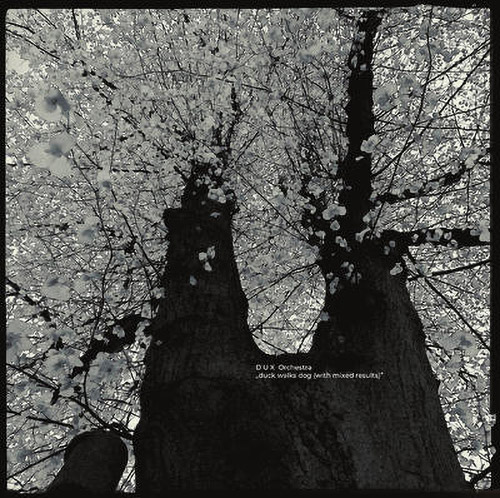



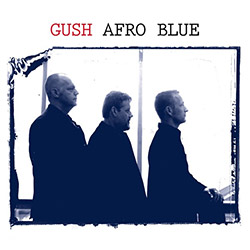
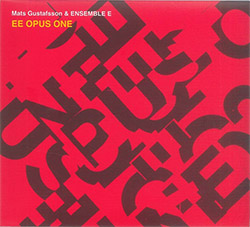
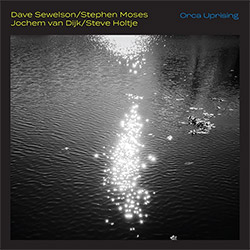
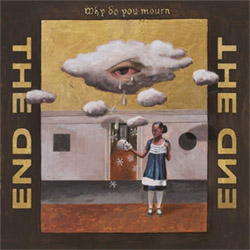
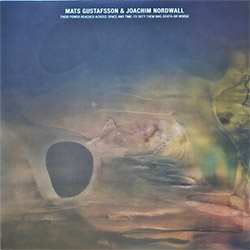

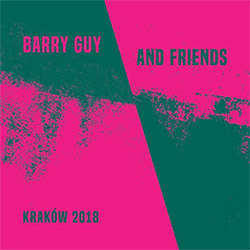

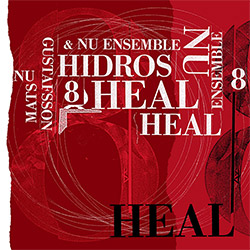
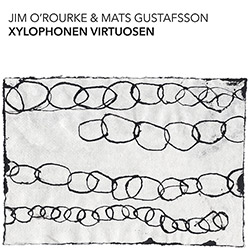
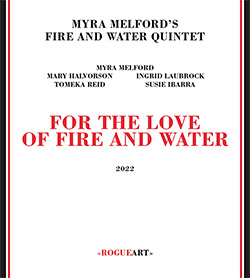


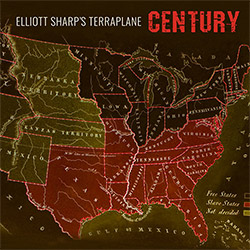

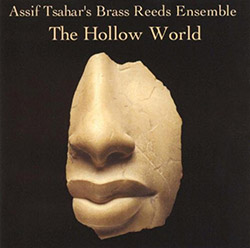
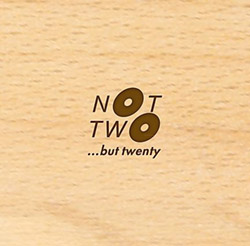
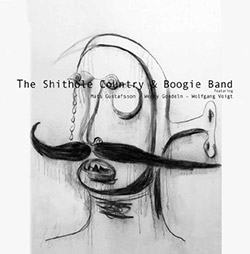

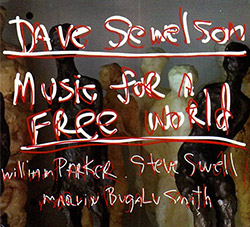

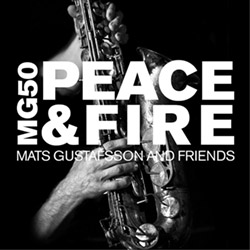







![Ackerley / Prymek / Turner: All Hope With Sleeping Minds [CASSETTE]](https://www.teuthida.com/productImages/misc4/35950.jpg)
![Myers, David Lee : Tin Drop Tear [BOOK w/ DOWNLOAD]](https://www.teuthida.com/productImages/misc4/36030.jpg)



![Schindler, Udo / Sandy Ewen / Damon Smith: Munich Sound Studies Vols. 4, 5 & 6 [3 CDs]](https://www.teuthida.com/productImages/misc4/35966.jpg)






![Turbulence Orchestra & Sub-Units: Smear Out the Difficulties (Double Live) [2 CDs]](https://www.teuthida.com/productImages/misc4/36048.jpg)
![Perelman, Ivo / Tyshawn Sorey: Paralell Aesthetics [2 CDs]](https://www.teuthida.com/productImages/misc4/35871.jpg)


![Sjostrom, Harri: SoundScapes #4 Festival Berlin 2023 [3 CDs]](https://www.teuthida.com/productImages/misc4/35874.jpg)

![Musicworks Magazine: #150 Winter 2024/25 [MAGAZINE + CD]](https://www.teuthida.com/productImages/misc4/36035.jpg)





![Glenn, Jordan: Flustered [CASSETTE]](https://www.teuthida.com/productImages/misc4/35948.jpg)


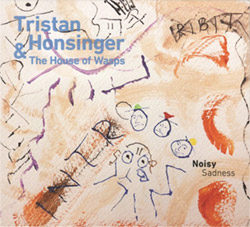
![Lindorff-Ellery, Evan: Church Recordings from Monhegan [CASSETTE]](https://www.teuthida.com/productImages/misc4/35949.jpg)
![Schindler, Udo / Werner Dafeldecker / Gunnar Geisse: Travelling Sound Images - Cognitive Transfers [Trio]](https://www.teuthida.com/productImages/misc4/35767.jpg)

![Egberth, Dennis: The Dennis Egberth Dynasty [VINYL]](https://www.teuthida.com/productImages/misc4/35549.jpg)


![Schindler, Udo / Rieko Okuda / Eric Zwang Eriksson: Disturbed Terrains [2 CDs]](https://www.teuthida.com/productImages/misc4/35330.jpg)
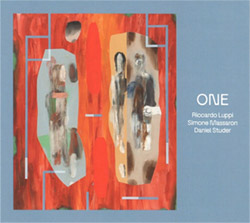
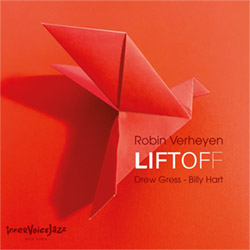
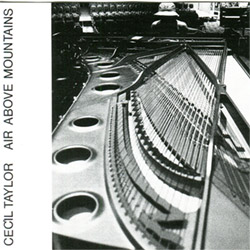


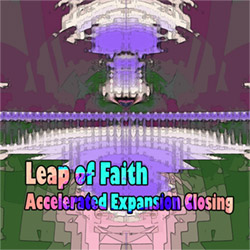
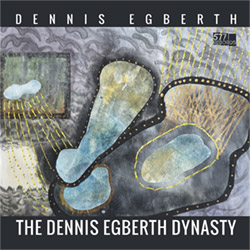
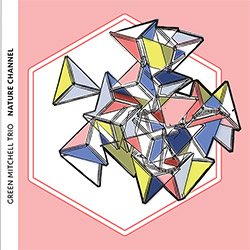

![Wolf Eyes / Anthony Braxton: Live At Pioneer Works, 26 October 2023 [VINYL]](https://www.teuthida.com/productImages/misc4/35839.jpg)




![Olencki, Weston : Pearls Ground Down To Powder [VINYL]](https://www.teuthida.com/productImages/misc4/35956.jpg)
![Myers, David Lee: Oculus [2CDs]](https://www.teuthida.com/productImages/misc4/35857.jpg)


![dustsceawung: dustsceawung [CASSETTE w/ Download]](https://www.teuthida.com/productImages/misc4/35753.jpg)




![Halls of the Machine: Atmospheres For Lovers And Sleepers [CASSETTE w/ DOWNLOAD]](https://www.teuthida.com/productImages/misc4/35806.jpg)



![AHC (Alexander Cooper): Lase [2 CDs]](https://www.teuthida.com/productImages/misc4/35754.jpg)



![Fagaschinski, Kai / Yan Jun : Graveyard Processions [VINYL w/ DOWNLOAD]](https://www.teuthida.com/productImages/misc4/35474.jpg)
![Brant, Cody / Carl Kruger: Smoke Detail [CASSETTE w/ DOWNLOAD]](https://www.teuthida.com/productImages/misc4/35551.jpg)







![Zorn, John / JACK Quartet: The Complete String Quartets [2 CDs]](https://www.teuthida.com/productImages/misc4/35609.jpg)

![Lonsdale, Eden: Dawnings [2 CDs]](https://www.teuthida.com/productImages/misc4/35480.jpg)







![Sanna, Claudio: Compositori Sardi Contemporanei II [2 CDs]](https://www.teuthida.com/productImages/misc4/35317.jpg)







![Zurria, Manuel: Fame di Vento [3 CDs]](https://www.teuthida.com/productImages/misc4/35167.jpg)

![Granberg, Magnus / Nattens Inbrott / Skogen: Holde Traume, Kehret Wieder! [2 CDs]](https://www.teuthida.com/productImages/misc4/35038.jpg)

![Electric Bird Noise / Derek Roddy: 8-10-22 [CD EP]](https://www.teuthida.com/productImages/misc4/35970.jpg)








![Elephant9 : Mythical River [VINYL]](https://www.teuthida.com/productImages/misc4/34624.jpg)



![Elephant9 with Terje Rypdal: Catching Fire [VINYL 2 LPs]](https://www.teuthida.com/productImages/misc4/35355.jpg)
![Deerlady (Obomsawin, Mali / Magdalena Abrego): Greatest Hits [VINYL]](https://www.teuthida.com/productImages/misc4/34876.jpg)







![Surplus 1980: Illusion of Consistency [CD]](https://www.teuthida.com/productImages/misc4/35069.jpg)
![Staiano, Moe: Away Towards the Light [VINYL + DOWNLOAD]](https://www.teuthida.com/productImages/misc4/35037.jpg)



![Caveira (Gomes / Sousa / Abras / Ferrandini): Ficar Vivo [VINYL]](https://www.teuthida.com/productImages/misc4/34643.jpg)
![Coley, Byron: Dating Tips for Touring Bands [VINYL]](https://www.teuthida.com/productImages/misc4/17906.jpg)

![Lost Kisses: My Life is Sad & Funny [DVD]](https://www.teuthida.com/productImages/misc4/lostKissesDVD.jpg)